
Are you dreaming of swimming alongside colourful fish or uncovering the mysteries of underwater wrecks? Earning your open water scuba diving certification can transform that dream into a reality. It offers a seamless blend of vacation bliss and adventure. Here’s a guide on embarking on getting your open water scuba diving certification on vacation. It also considers why you might want to get certified before going on vacation.
Planning is key. Your first step is to select a resort that offers diving certification programs, which will take some research. Look for destinations renowned for their dive sites, such as Australia’s Great Barrier Reef, the Red Sea in Egypt, or the clear waters of the Caribbean. Select a resort affiliated with a reputable diving organisation. PADI (Professional Association of Diving Instructors) and SSI (Scuba Schools International) are two of the most recognised diving organisations. Qualifications from both organisations are recognised globally.
For more information on PADI and SSI, you can head over to their websites:
The two introductory certifications are the Open Water Diver and the Scuba Diver qualifications. Each has training requirements, limitations, and opportunities tailored to suit different levels of commitment and exploration desires.
You need to understand what you must do to complete each and choose the course that suits you best.
The Open Water Diver certification is the standard for a comprehensive introduction to scuba diving. This certification gives you the necessary skills and knowledge to dive independently (with a buddy) up to depths of 18 meters (60 feet).
Do this course if you are serious about diving and wish to explore a variety of underwater environments. The certification is recognised globally. It allows divers to rent equipment, refill tanks, and book dive excursions at many diving destinations worldwide.
The Scuba Diver qualification is a subset of the Open Water Diver course. It is perfect for those who may not have the time to complete the entire Open Water course or prefer to dive under the direct supervision of a professional. This qualification allows you to dive up to 12 meters (40 feet) deep, always accompanied by a certified dive professional.
Additional training can upgrade The Scuba Diver qualification to a full Open Water Diver certification.
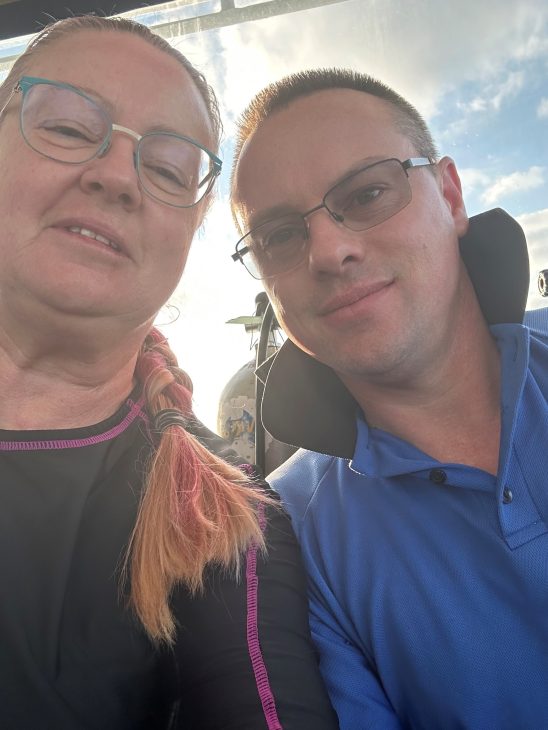
Becoming a certified open water diver involves three main components: theory, confined water dives, and open water dives.
If you decide to complete the Scuba Diver qualification, you must complete a portion of the Open Water Diver course. You undertake theory lessons, confined water dives, and usually two open water dives to practice your skills in the sea.
Choosing between these certifications depends on your personal goals, time, and commitment level. The Open Water Diver certification is the way to go if you aim to dive independently. However, if you’re pressed for time, unsure about diving, or prefer the assurance of a professional guide during your dives, the Scuba Diver qualification might be more suitable.
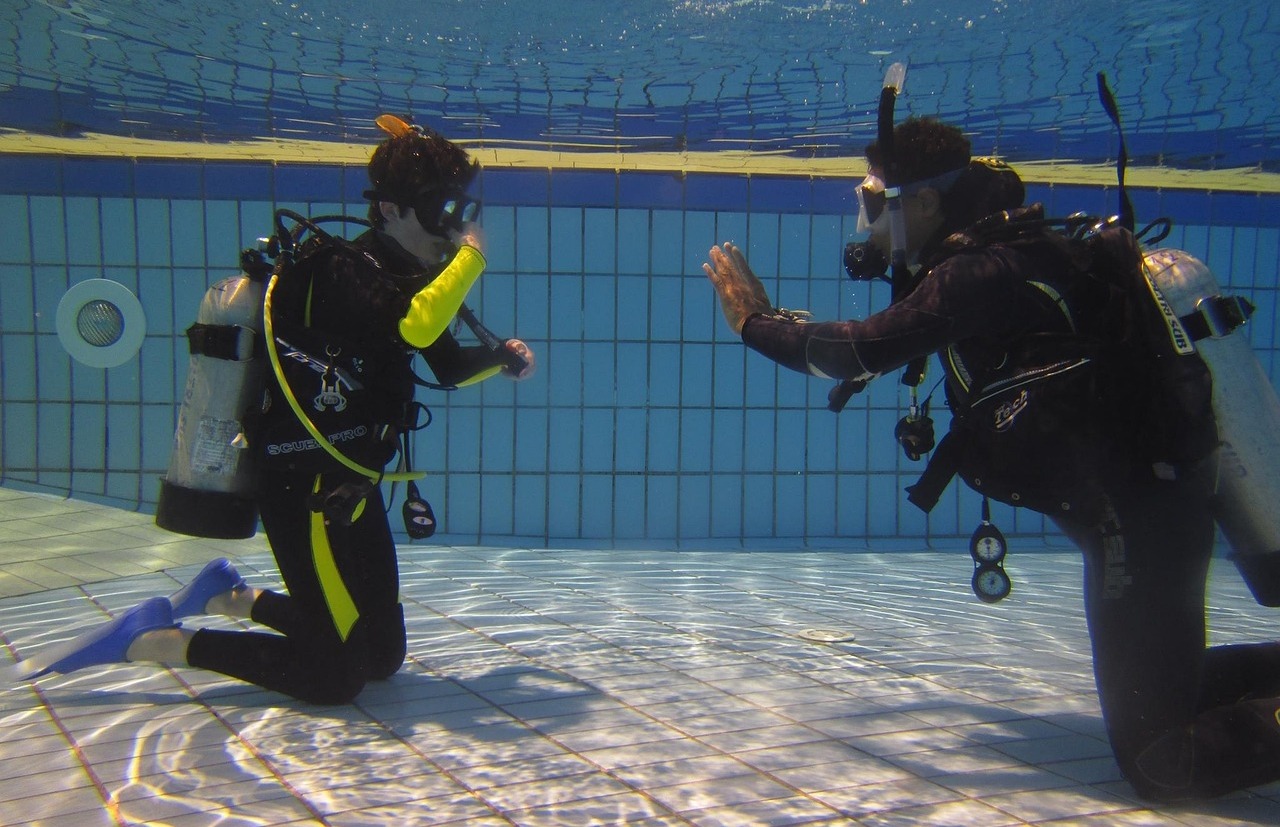
Typically, certification can take a few days to a week, depending on the program’s intensity and comfort level. When planning your resort stay, allocate enough time for the certification process and enjoy some leisure time after becoming certified.
It is also essential to have sufficient time between your last dive and your flight/s home. For health reasons, never finish a dive and head to the airport.
Resort diving programs often include equipment rental, instruction, and certification fees. To avoid surprises, you should verify what your package includes. Ask if e-learning materials, gear rental, and certification costs are covered. Also, inquire about the student-to-instructor ratio to ensure you receive personalised attention.
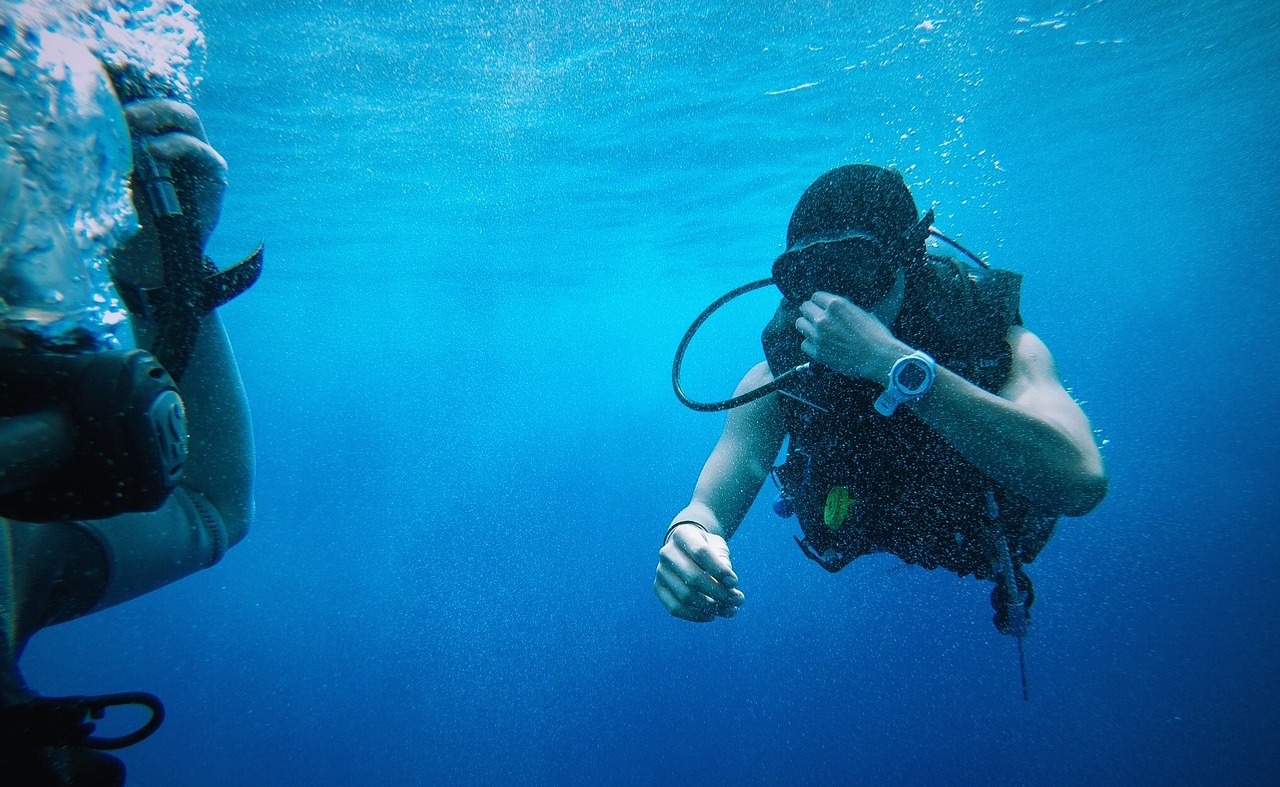
Diving is an exhilarating yet physically demanding activity. Most programs require a medical questionnaire and potentially a doctor’s clearance to ensure you’re fit to dive. Be honest about your health history to avoid any underwater risks. I needed to get a dive medical because I am over 45. Check if you need a doctor’s clearance before booking as you may not be able to get a clearance at your destination.
Listen closely to your instructor and never dive beyond your training or comfort level.
While obtaining your certification is the goal, remember to enjoy the journey. Relish the unique marine life, the sensation of weightlessness, and the tranquillity of being underwater. These moments enhance your travel experience and leave you with memories that last a lifetime.
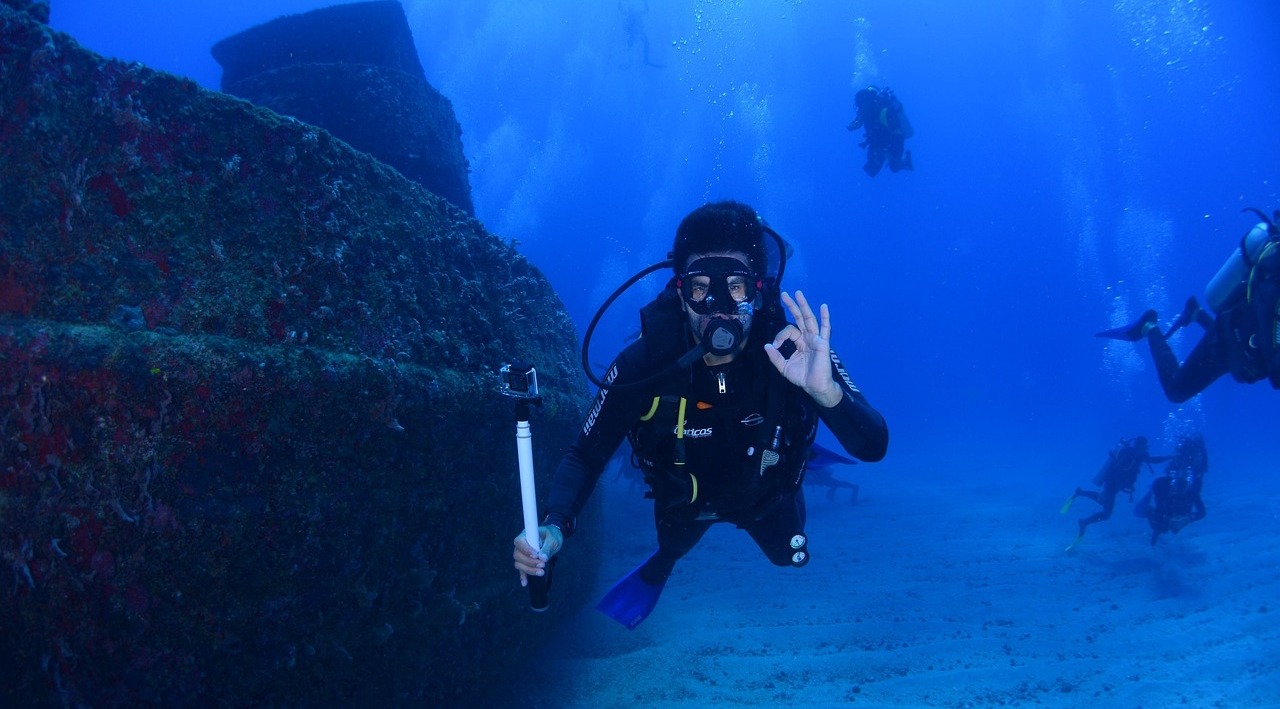
Getting your open water diving certification before vacation rather than at a resort can enhance your holiday experience. Consider the following when making a decision:
Getting certified before your vacation can free up vacation time for actual diving. It opens up more diving opportunities, ensuring comfort and confidence in your diving abilities, and potentially reducing costs.
Whether you decide to get your diving certification while on vacation or before, you will love the adventures it opens up.
With your open water diving certification, the world’s oceans, lakes, and seas become accessible to you. Whether it’s exploring the vibrant coral reefs of Belize, the historic wrecks in the Mediterranean, or the biodiverse waters of Indonesia, your certification is your ticket to countless underwater adventures.
It’s an enriching experience that broadens your travel horizons and opens up a new realm of exploration beneath the surface. So, take the plunge and discover the wonders that await in our planet’s waters.
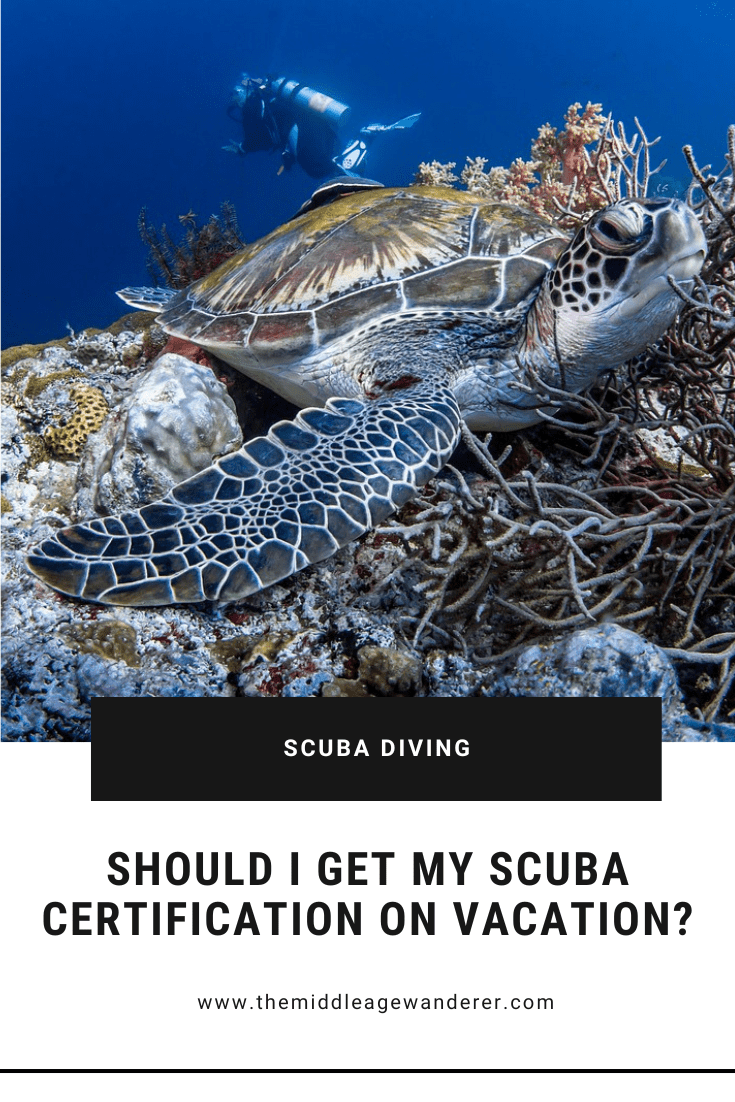
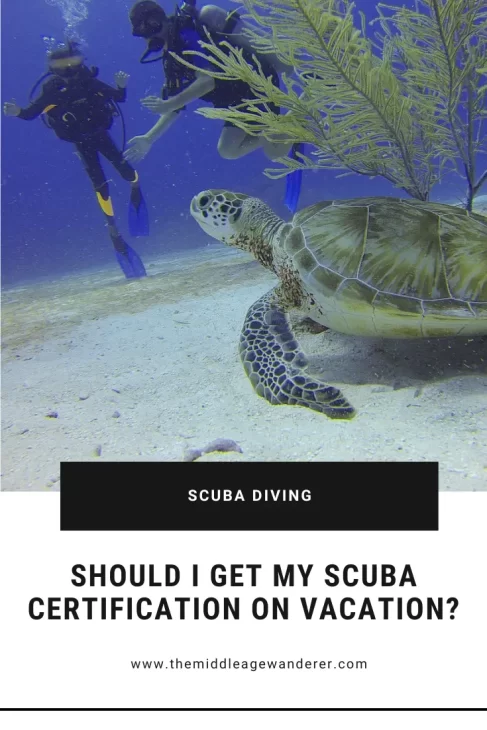
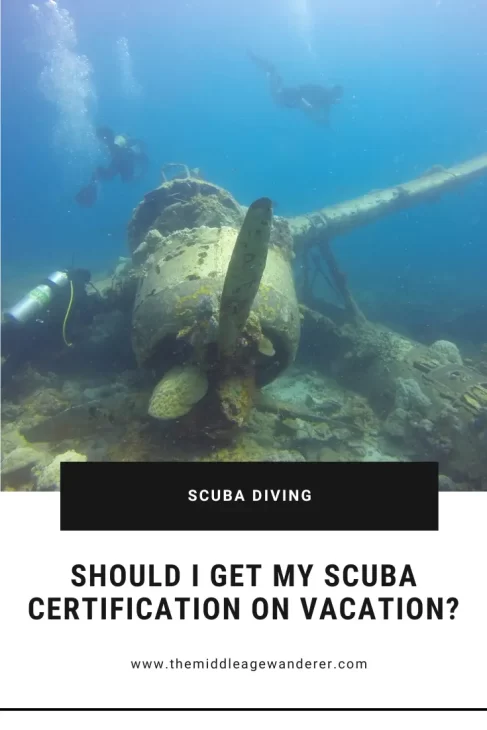
© 2024 The Middle Age Wanderer
Made with 
20 Responses
I got mine on vacation in Roatan and I’m glad I did it in those warm, tropical waters!
Definitely nice to get it in warm water!
Valuable information and suggestions. I have given this some thought over the years but I think I am too old now at 64. But I love a good snorkle. I’m sharing this with some friends who I think will find it useful.
Never too old Laureen. I was 54 when I got my qualification. If you pass a medical (everyone over 45 needs one) you can do the course.
I kind of did both. I did get my Open Water certification at a resort, because I thought if I got it on location it would be more motivating than training in a swimming pool, but it was a resort in my own country with warm, easy diving.
But I agree that the first time is much better if it’s in familiar surroundings, in your own language etc. rather than a destination far away, although I suppose for some people it isn’t an option.
It’s definitely an individual choice but either way, its a great thing to do and it opens up so many more places to explore.
a great article weighing all options as well as pros and cons. I personally opted to get my OW Naui before i traveled ( I’m lucky because I live in Cyprus and the waters are ideal for diving). I’m glad I did because I ended up doing 15+ dives in the comfort of my own time before I used up my certificate to dive at Komodo National Park in Indonesia. It was an insane experience!
Thanks Galatia. I did the same, getting qualified at home. I live in Queensland, Australia, so like you we have great waters to go diving in. And just a bit jealous about Komodo National Park lol. Hopefully heading there early next year.
Good question. I recently got mine and did it close to home because I wanted to ‘hit the water swimming’ so I could enjoy the diving without worrying about getting the qualification. Each to their own!
Thanks Sharyn. I ended up doing mine at home first, but it was talking to a lady in Fiji that was doing hers through the resort we stayed at that encouraged me to do it.
I have never been scuba diving but I have been snorkeling. I might think about it, but it does make me a little nervous to think about going down that deep in the water!
Hi Kelly, I had similar concerns but once I was underwater, I totally forgot about how nervous I was about it.
As a fan of snorkeling, scuba seems like the next progressive move. I can imagine the adventures that open up once you are certified.
It definitely gives you so many more options to explore.
Very good detailed post! I got certified two years ago and did my theory online while commuting to work, which left more time for diving. I knew that the sea would be pretty good ( reasonably warm, decent visibility, low current) but if you are holidaying somewhere with challenging conditions it might be useful to get certified and get a few practice dives somewhere calm. I got certified in Sardinia (SSI Open Water) which I can recommend, and also, my next diving trip, Jordan, was really suitable to get certified as a beginner.
Great advice too Anja. I got certified at home in Queensland, Australia. And will definitely look at diving in Sardinia now too!
I think I’d prefer to get certified in our Colorado lakes during the summer. That way I’d be more confident going into the vacation.
Agree Sonia. I did it in the nice warm waters at home in Queensland, Australia.
I like the idea of getting the certificate before travelling, so you can spend longer underwater actually exploring on holiday!
That’s what I did Josy. I felt more comfortable doing it that way.